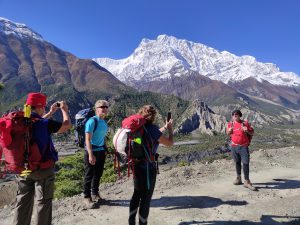
In an interconnected world where talents transcend borders, the phenomenon known as ‘brain drain’ emerges as a complex and multifaceted challenge. Brain drain refers to the emigration of highly skilled and educated individuals from one country to another, creating a significant loss for the nation left behind.
This global mobility of intellectual capital comes in various forms, such as push and pull factors driving individuals to seek opportunities abroad. The features of brain drain include the departure of professionals, scientists, and experts, leaving their home countries with a shortage of skilled workforce and intellectual prowess.
This migration, often fueled by economic disparities, political instability, and better career prospects elsewhere, has far-reaching implications for both the origin and destination countries.
Brain drain, an expansive realm encompassing the departure of skilled individuals in pursuit of greener pastures abroad, casts a shadow over our nation’s developmental trajectory. Within this intricate tapestry, the migration of medical professionals, particularly doctors and nurses, emerges as a focal point of concern. Their departure leaves an indelible mark on healthcare systems, amplifying pre-existing resource shortages and impeding access to quality medical services.
It is time to examine the intricate dynamics of medical brain drain, uncovering its profound effects on the healthcare landscapes of Nepal. The departure of skilled medical professionals impacts the accessibility and quality of healthcare services within the country.
Crisis in skilled manpower
The escalating exodus of doctors from our country has reached critical proportions, portending a looming crisis in skilled manpower that threatens the nation’s healthcare system for the foreseeable future. In 2023, a meagre 2,318 doctors obtained character certificates from the medical council, indicating their intent to seek opportunities abroad. To compound this concern, only 2,320 doctors successfully passed the medical license examination, further highlighting the severity of the issue.
Examining the global healthcare landscape through the discerning lens of the Worldwide Strategy 2030, which assesses the requisite number of doctors in the health sector, the ideal doctor-to-population ratio stands at 4.45 doctors per 1,000 individuals.
In stark contrast, Nepal currently lags significantly behind, with a mere 1.094 doctors per 1,000 population, underscoring the gravity of the ongoing doctor shortage and its direct repercussions on public health. The ramifications extend to governmental hospitals, grappling with critical staff shortages where nearly 50 per cent of consultant and medical officer positions remain unfilled.
Furthermore, over 60 per cent of general physician roles remain vacant, presenting a formidable obstacle to adequately staffing the health posts slated to be operationalised shortly. Addressing this predicament transcends the mere retention of skilled professionals; it is intrinsically linked to the well-being of the population and the overall effectiveness of the healthcare system. Urgent and comprehensive interventions are imperative to remedy this pressing issue and fortify the foundation of the nation’s healthcare infrastructure.
Healthcare challenges

The scenario depicted above serves as a stark reminder of the pressing healthcare challenges that loom ominously on the horizon, threatening to significantly impact people’s well-being in the years to come.
Within our nation, a substantial majority, approximately 80 per cent, resides in rural regions where healthcare infrastructure remains alarmingly inadequate. Access to proficient medical practitioners and specialised care is a luxury reserved for the privileged few, leaving the majority grappling with limited options and substandard healthcare services.
In the absence of qualified doctors or specialists, individuals often find themselves at the mercy of less-trained healthcare workers, who lack the authority to prescribe medications. Despite the inherent risks associated with this makeshift approach to healthcare, individuals are left with no choice but to heed their advice, resorting to self-medication that may exacerbate their health woes over time.
The fundamental right to healthcare, a cornerstone of societal well-being, remains grossly neglected within our country’s healthcare landscape. A glaring disparity emerges between the healthcare privileges afforded to influential political figures and the stark realities faced by ordinary citizens.
While the affluent elite can effortlessly access premier medical treatment abroad, funded generously by state coffers, the vast majority of the populace languishes without even the most basic healthcare provisions.
This stark inequity underscores a systemic failure to address the healthcare needs of the general populace, particularly those residing in rural hinterlands who bear the brunt of neglect and indifference.
The phenomenon of doctors and healthcare professionals seeking greener pastures abroad exacerbates the existing healthcare crisis, exacerbating the scarcity of skilled medical personnel within domestic healthcare institutions.
Unlike other government occupations, there exists no structured framework for recruiting medical professionals, leaving them mired in uncertainty regarding their professional prospects.
Moreover, the exploitative practices rampant within private healthcare establishments, characterised by paltry remuneration and gruelling work conditions, serve as a potent catalyst driving medical professionals towards overseas employment opportunities.
This mass exodus of healthcare professionals precipitates a dire shortage of medical personnel, particularly in rural locales where healthcare infrastructure is already woefully deficient, compounding the healthcare woes of underserved communities.
At its core, the brain drain plaguing the healthcare sector unveils systemic inadequacies deeply entrenched within our healthcare framework. Urgent remedial measures are imperative to stem the haemorrhage of skilled medical professionals and foster an environment conducive to their retention within domestic shores.
Comprehensive reforms are warranted to ensure equitable access to quality healthcare services for all citizens, regardless of their geographic location or socioeconomic status. Only through concerted efforts to rectify these entrenched issues can we realise the overarching goal of guaranteeing universal access to healthcare and safeguarding the inherent right to good health for all individuals.























